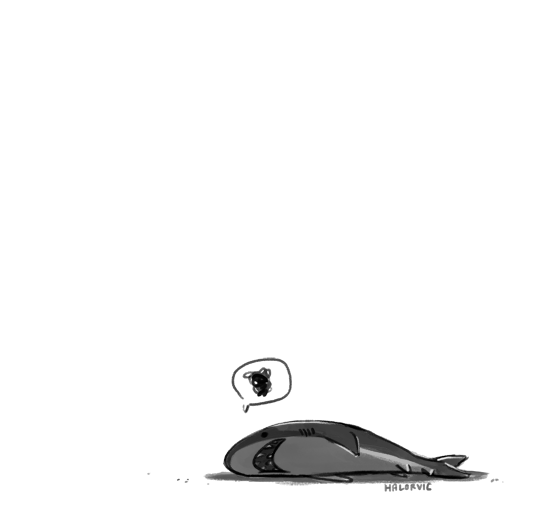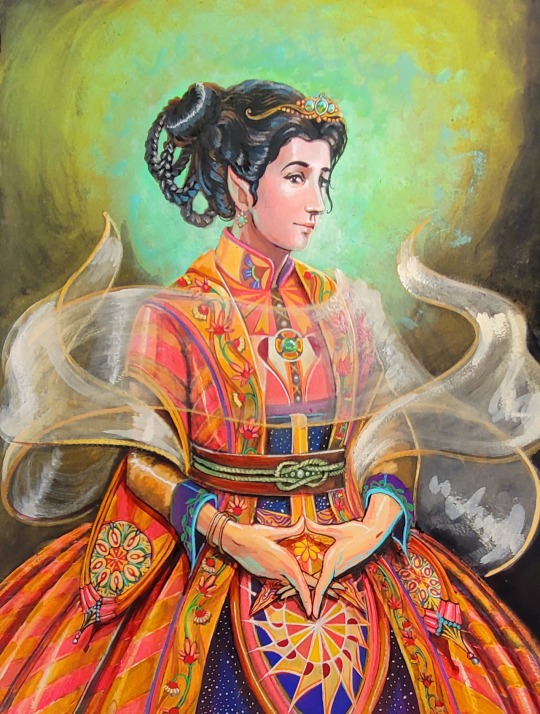Text
hate when people are like "trust your gut! listen to your intuition!" like okay well my gut is telling me every person i lay eyes on is hunting me for sport and my intuition is saying i should find a secluded cave and live there forever so what do you suggest i do with that information
82K notes
·
View notes
Text
December 2024 Updates

Welcome, everyone! I am now posting monthly updates that will discuss my Meisun directory and other things that catch my interest that I don’t want to share on my other blogs.
I have been listening to more podcasts lately! I’ve been enjoying the Monster Donut podcast for the Percy Jackson series, Daughters of Ferrix for Star Wars, and the Sillymarillion for Lord of the Rings.
I also updated my profile picture on all of my Meisun accounts! It’s a digital drawing I made years ago. It’s not that good, but it’s fun being able to use my own art for my profile pics :).
Thank you so much for visiting! Feel free to share your updates and what has been catching your interest below and let me know if you have any good podcast recommendations! I mostly listen to podcasts that discuss/analyze stories I’m interested in, but I’m up to try other types of podcasts, too! See you in the next update! Before you go, I urge you to educate yourself about, donate, and support these organizations who are doing important, although unfortunately needed work in and to support Palestine and the Democratic Republic of Congo: Operation Olive Branch’s mutual aid list, Friends of the Congo, Focus Congo. For more resources and organizations to support, please look here.
0 notes
Note
how have you been?

446K notes
·
View notes
Text
HAPPY THE FELLOWSHIP SETS OFF FROM RIVENDELL DAY!!!!!!!
510 notes
·
View notes
Note
do you condemn the grinch
Ugh. People acting as if the grinch is still cancelled really just expose the problems with the online social justice movement. Not only did he apologize, but he returned every gift, cut the turkey for the dinner, and his heart grew three sizes. Acting as if the actions of the grinch still deserve condemnation is making it known that you don’t believe that people can change
4K notes
·
View notes
Text
if you’re not into some dumb embarrassing shit you’re not living your truth
114K notes
·
View notes
Note
Hi, I hope you're doing well and I am sorry in advance if I sent you this message before. We are very close to the goal and I really need your help. I'm writing to you with a heavy heart and an urgent request for help. My family is in a very danger situation due to the ongoing war, and I've launched a GoFundMe campaign to save them. Could you please rebblog my campaign post from my profile?🙏 Feel free to share it in any other social media platform if you would like. Our campaign has been verified ⭐️ by operation olive branch, and is entry number 26 on their spreadsheet. Also with ⭐️ Project watermelon,line 249/(212) on their spreadsheet. From the bottom of my heart I want to thank you in advance for all of your support and kindness.
More Actions:
Actions for Palestine [Background]
Actions for DR Congo/Eastern Congo Initiative [Background]
Actions for Sudan [Background]/One Million Sustainable Pads Campaign
Free West Papua
Stop Genocide Now (not the most up-to-date, but cites other orgs to support and sites to educate yourself)
1 note
·
View note
Text

The Portrait of Lady Miriel Þerindé that hangs in the dining hall at Formenos
💔✨️🪡🧵
343 notes
·
View notes
Text

I wish they had more time :(
193 notes
·
View notes
Text
DEVASTATING! one half of the themes in a song you like fits a character perfectly however the rest of it does not at all
19K notes
·
View notes
Text
The ending of Adar and the orc's narrative was exactly how it needed to end. It was strikingly inkeeping with the themactic through line of 'everyone is doing everything they can think of to stop the horror and in doing so they are creating the horror' and was absent all the resolving narratives I was worried about. They did not give us a 'see orcs really are evil so it's fine' ending they did not give us a 'these orcs are good so they get to live but the rest chose evil so it's okay to kill them' ending.
Rings of Power said these people have been so brutalised from birth, so reviled, so hopeless and choiceless and only one person with any seeming power has ever cared for them as thinking breathing souls. And the moment they clawed out a home for themselves where they might finally know what safety and gentleness feels like, that person dragged them all back into the mud and the blood to feed the war machine like meat to a grinder. And he told them he loved them whilst he did it. A betrayal so raw and burning and painful that the desperation it inspired must have felt maddening, anything better than how much this hurts. Better an honest devil with cold demands, if war is all you will ever be allowed, than the father you love who will break your heart as well as your body, right?
And then RoP was like "So you just have to deal with that!" The orcs, like so many people in this show, will never get a happy ending, it will not matter how much they loved or cared or hurt or needed or were misunderstood. In fact, it will be precisely BECAUSE they love and care and hurt that they will never see even a glimmer of peace or freedom again!!!! And they will not deserve it!!!!!!!!!!! AND WE SIMPLY HAVE TO COPE!! Every subsequent moment an orc is onscreen will be coloured by this knowledge. It's literally so heartbreaking it's making me feverish.
239 notes
·
View notes
Text

#140 - 小島 (xiǎodǎo / island) - Been playing this game a lot lately…🏡🏝️🎣
1K notes
·
View notes
Note
Hi, I hope you're doing well. I'm writing to you with a heavy heart and an urgent request for help. My family is in a very danger situation due to the ongoing war, and I've launched a GoFundMe campaign to save them. Could you please share my campaign post from my profile? Each share could be a lifeline for my family. 🙏 Feel free to share it in any other social media platform if you would like. Our campaign has been verified ⭐️ by operation olive branch, and is entry number 26 on their spreadsheet. Also with ⭐️ Project watermelon,line 249/(212) on their spreadsheet. From the bottom of my heart I want to thank you in advance for all of your support and kindness.
Actions for Palestine [Background]
Actions for DR Congo/Eastern Congo Initiative [Background]
Actions for Sudan [Background]/One Million Sustainable Pads Campaign
Free West Papua
Stop Genocide Now (not the most up-to-date, but cites other orgs to support and sites to educate yourself)
2 notes
·
View notes
Text
malaya picrews


i like the first one better but the second one has her dagger from amihan
first, second
9 notes
·
View notes
Text
"Gyatso is just as bad as Sozin─"
Why would you say this to a victim who suffers from colonization, stereotypes, having to watch around his surroundings being burned to crisp even his people and just wanted people to stop being violent towards to other people because it doesn't make any things better to an imperlistic, genocidal, racist, colonizer?? Who ─ by the way, possibly took over Lambak Clan and destroyed its beauty after Roku's death and made a negative impact on the rest of the world.
You guys make me genuinely SICK. For a lovable and life-changing show, some of you all tend to be too kind on the Fire Nation and terribly, horrid towards those who were opressed by the Fire Nation.
Note: Randy Ribay is Filipino. Philippines was not only colonized once but thrice by different countries. He had definitely poured all his soul into writing the story because he handled the subject with care.
The book is barely a month IN.
176 notes
·
View notes
Text

Man I bet on the inside she was so proud of him

"The only mistake we make is not looking within" because after a while she stopped doing it. And that's when she lost herself, became someone her younger self would have been ashamed of.
And then she started looking within again, anr accepted that it was time to leave it to the next generation.
And now Roku is there, and he reminds her of her so much of her younger self - the servant girl with her hatred for Daofei and firm belief in justice, before things got complicated - and all she can say to him is "Find out who you are, and be steadfast about it. Don't lose yourself Roku"
118 notes
·
View notes




